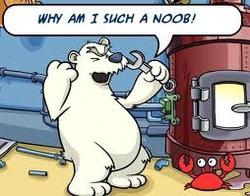

I’ve got an 8BitDo Pro2. I really like it, but I used to have problems connecting it over Bluetooth (wired would work perfectly fine.)
It just needed a firmware update. You’d probably be fine now (I’ve had my controller for a long time now, and rarely ever gave it an update), but if you experience connection problems with it, I’d try updating the firmware.
After doing that, my controller has worked like a champ ever since.















I don’t think the Pro 2 has gyro, no. Other models might though, I haven’t looked at their offerings for a good while now, lol.Never mind, I looked it up and apparently the Pro 2 has gyro in Switch mode. I’ll try it out on my PC and report back, lol. (I’ve never really bothered with gyro, tbh)
Edit: Yeah, I can’t get gyro working. In Switch mode (wired), my PC doesn’t see the controller at all (on Linux 6.12, so it should have drivers for the Nintendo Pro controller — I’ve read that driver has issues with 3rd party controllers anyway, so…)
Interestingly, in “A” mode it shows up as a DS4 controller, but I don’t see any gyro input with it under both Sudachi & RPCS3.
So, maybe it works, but I can’t get it working in under ½ an hour 😅